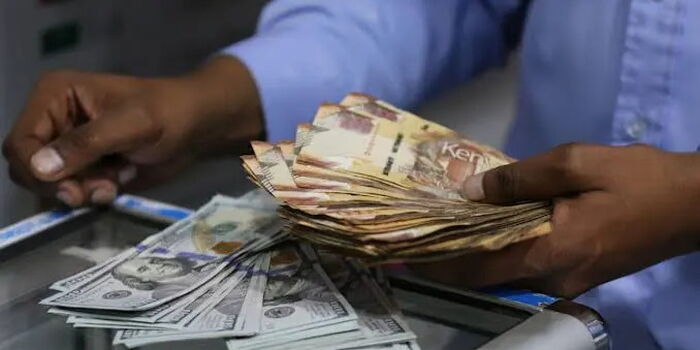Kenya Faces Ksh12.8 Billion Loss in Exports Due to Trump’s New Tariff Order
Kenya is expected to lose around Ksh12.8 billion (equivalent to $100 million) every year in export revenue to the United States after former U.S.
President Donald Trump introduced a new directive imposing a 10 percent reciprocal tariff on goods coming from Kenya.
This was revealed by the Governor of the Central Bank of Kenya (CBK), Dr. Kamau Thugge, during the Monetary Policy Committee (MPC) meeting held on Wednesday, April 9.
Thugge explained that although this new tariff will slightly affect Kenya’s export earnings, it is not expected to significantly harm the overall economy.
According to the CBK Governor, Kenya exports goods worth about Ksh84 billion (roughly $650 million) to the United States each year.
However, with the new 10 percent tax on exports, the country could lose up to $100 million annually.
He further reassured that the new tariffs will not affect the strength of the Kenyan shilling, which has remained relatively stable compared to the U.S. dollar over the past year and into this year.
On the day of the announcement, Wednesday, April 9, data from the London Stock Exchange Group (LSEG) showed that the shilling was trading at Ksh129 against the dollar.
“If our exports remain at around $650 million and we apply the 10 percent tax, we are likely to lose about $100 million,” Thugge stated.
“But when you compare that $100 million loss to our national Gross Domestic Product (GDP), it is quite small.
Therefore, we don’t expect it to cause any major problems for our balance of payments or affect the foreign exchange rate,” he added.
Trump’s latest directive, which was signed last week, applies broad reciprocal tariffs on imports from countries around the globe, and Kenya was not spared.
The executive order introduces a new tariff structure that starts with a base rate of 10 percent and can increase depending on factors like trade imbalance and diplomatic ties.
As a result of this order, Kenya will now face a total tariff rate of 20 percent on its exports to the U.S., despite being the sixth-largest African trading partner of the United States.
Other African countries were also hit by similar tariffs, with most of them facing the minimum 10 percent rate.
Despite these tough changes, Kenya’s Trade Cabinet Secretary Lee Kinyanjui remains hopeful. He recently said that although the new U.S. tariff rules present serious challenges for Kenya, they also open up new possibilities.
Kinyanjui pointed out that the increased tariffs could push Kenya to boost local industries, especially the textile and leather sectors.
He noted that Kenya has not yet fully explored the potential of its textile industry, and this could be the right moment for the government to invest more in it.
He added that these changes should serve as motivation for the country to reduce over-dependence on exports to Western countries and instead focus on building strong local industries that can support job creation and economic growth.
Join Our Political Forum official 2025 WhatsApp Channel To Stay Updated On time https://whatsapp.com/channel/0029VaWT5gSGufImU8R0DO30


